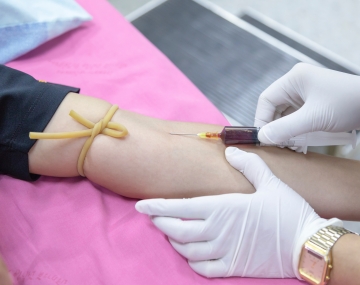Cord Blood Banks
Also known as umbilical cord blood repositories, cord blood banks store (like a bank does money) umbilical cord blood to be used in the future. In the growing response for cord blood to treat blood and immune system diseases, cord blood banks accept donations like a public blood bank does. At their core, cord blood contains hematopoietic stem cells which are in the blood that the baby left in the placenta and umbilical cord post-birth. These cells are highly effective in combating certain diseases.
The reason why hematopoietic stem cells are so special is becausemost cells can only make copies of themselves. For example, a skin cell making a copy of another skin cell. But the hematopoietic stem cell possesses the capability of evolving and maturing into a multitude of blood cells within the body. To date, hematopoietic stem cells have been successful in treating roughly 70 distinct diseases which range from neurologic disorders, genetic disorders, some forms of cancer (lymphoma and leukemia) as well as immune system diseases.
The advantage of using cord blood is the matching component. More matches are possible with cord blood than for example blood from bone marrow. Cord blood can also be frozen and stored for some time while bone marrow blood needs to be used almost immediately. Speaking of storage, back to the cord blood bank. There are currently two types of banks – public and private. Public banks house cord blood for allogenic transplants, where stem cells are collected and used to treat someone who is not related to the donor. There are some public banks that will store cord blood for a specific, directed use, but in general it is like the name suggests –for public use.
Private banks on the other hand store cord blood for what’s knownas autologous use, where the recipient is a family member. These banks charge a fee to store the cord blood and the donor has the freedom to determine who exactly can receive their blood in the event of disease. Family medical history documentation is required for both public and private bank donations as is rigorous testing of the mother for infections or genetic disorders.
Prior to donating, there are some things to consider. First, check with the hospital first where the blood would be collected. Only certain hospitals collect cord blood for public bank storage and some even charge a fee for a public bank. Second, the fees for the private banks can be stiff, so storing a child’s stem cells as a type of “insurance” against a future disease is not advised. The costs historically outweigh the potential benefits. Lastly, private bank annual storage fees will fluctuate greatly, so know what you’re signing up for prior to signing the bottom line. Cord blood banks are profitable businesses for a reason.
Check out some of the best-rated cord blood banks from real Riffbuddy consumers: Cord Blood Banks


Comments:
Login to leave a reply